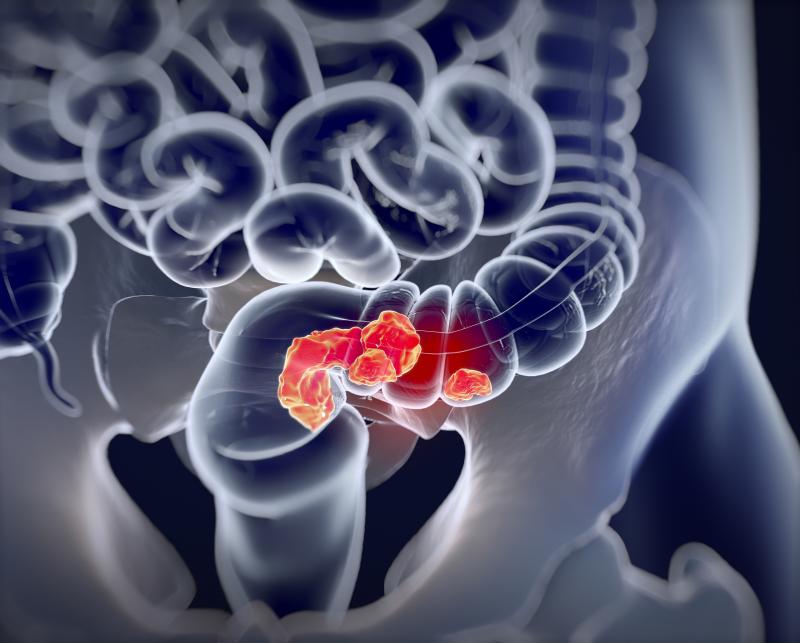
Ensituximab, a chimeric monoclonal antibody targeting a variant of MUC5AC, shows modest clinical activity with good safety profile in patients with refractory colorectal cancer, according to data from a phase II study.
The study included 63 patients with advanced, refractory cancer who expressed MUC5AC antigen in tumour tissue (median age, 58 years; 54 percent male). The mean time from initial diagnosis to study entry was 3.79 years, and all patients had undergone a median of three prior cancer-directed therapies.
All patients received infusions of ensituximab at 3 mg/kg every 2 weeks. Among 57 patients (90 percent) who were evaluable, the median overall survival (OS) was 6.8 months and longer than the 5.0 months observed in the historical control (p=0.007). Twelve patients (21 percent) achieved stable disease (SD) at the end of the first treatment course. Forty-nine patients were evaluable for progression-free survival, which had a mean duration of 70.4 days.
The study drug was well tolerated. Commonly reported treatment-related adverse events (AEs) were fatigue (38 percent), anaemia (30 percent), nausea (15 percent), vomiting (11 percent), increased bilirubin (9 percent), constipation (8 percent), decreased appetite (6 percent), and diarrhoea (6 percent).
Serious AEs potentially related to ensituximab occurred in four patients and included anaemia, nausea, increased bilirubin, and hypoxia. None of the patients discontinued treatment due to drug-related AEs.
The present data provide supporting rationale for investigating combination therapies containing ensituximab plus interleukin-15 or other agents, such as chemotherapy, to boost efficacy in the patient population, researchers said.